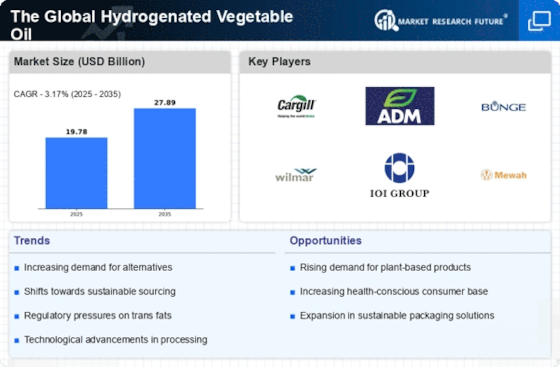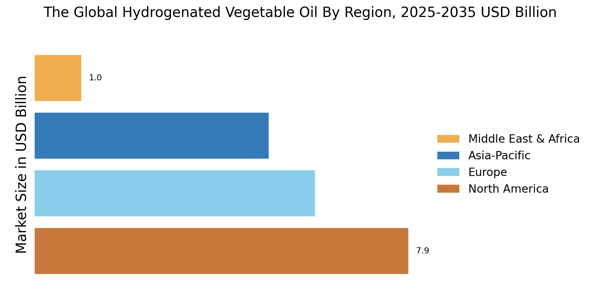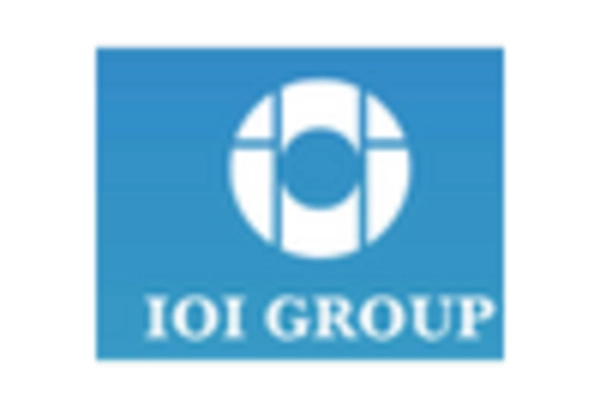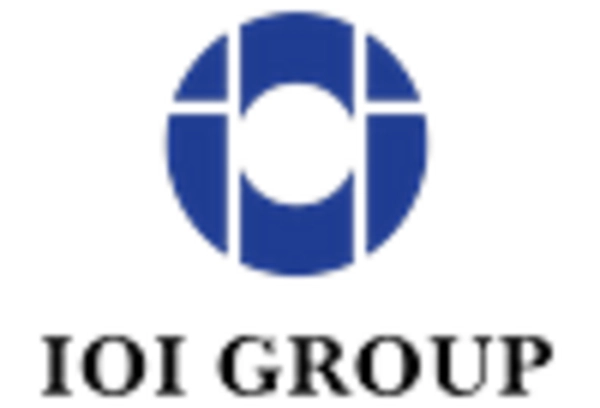Regulatory Support
Regulatory frameworks are increasingly supporting the use of hydrogenated vegetable oils, which is positively impacting The Global Hydrogenated Vegetable Oil Industry. Governments are implementing policies that encourage the use of healthier oils in food products, thereby promoting the consumption of hydrogenated oils that meet specific health standards. This regulatory support is likely to create a favorable environment for manufacturers, as compliance with health regulations can enhance product acceptance in the market. As a result, the industry may experience growth driven by the alignment of product offerings with regulatory guidelines, potentially leading to increased sales and market expansion.
Diverse Applications
The versatility of hydrogenated vegetable oils is a key driver in The Global Hydrogenated Vegetable Oil Industry. These oils are utilized across various sectors, including food processing, cosmetics, and biofuels, which broadens their market appeal. In the food industry, hydrogenated oils are commonly used in margarine, baked goods, and snack foods, contributing to a substantial portion of the market. The diverse applications of these oils are expected to sustain growth, with the food sector alone projected to account for over 60% of the total market share by 2026. This adaptability is likely to attract new entrants and foster innovation within the industry.
Sustainability Initiatives
Sustainability has become a pivotal concern for consumers and manufacturers alike, influencing The Global Hydrogenated Vegetable Oil Industry. Companies are increasingly adopting sustainable practices in sourcing and production, which is likely to enhance their brand image and appeal to environmentally conscious consumers. The market is witnessing a shift towards oils derived from sustainable sources, with an estimated 30% of the market now focusing on eco-friendly production methods. This trend not only addresses consumer demand but also aligns with global sustainability goals, potentially leading to increased market share for companies that prioritize sustainable practices.
Technological Advancements
Technological innovations in oil processing and refining are significantly influencing The Global Hydrogenated Vegetable Oil Industry. Advances in hydrogenation techniques are enabling manufacturers to produce oils with improved stability and shelf life, which is appealing to both producers and consumers. The introduction of new processing technologies is likely to enhance the quality of hydrogenated oils, making them more competitive in the market. Furthermore, these advancements may lead to cost reductions in production, allowing companies to offer more competitive pricing. As technology continues to evolve, it is expected that the market will benefit from enhanced product offerings and increased efficiency in production.
Health-Conscious Formulations
The increasing consumer awareness regarding health and nutrition is driving the demand for healthier food options, which is reflected in The Global Hydrogenated Vegetable Oil Industry. As consumers seek alternatives to trans fats, manufacturers are reformulating products to include hydrogenated vegetable oils that offer improved health benefits. This shift is evident in the food industry, where the market for hydrogenated oils is projected to grow at a compound annual growth rate of approximately 4.5% over the next five years. The emphasis on health-conscious formulations is likely to encourage innovation in product development, leading to a wider range of offerings that cater to health-oriented consumers.




















